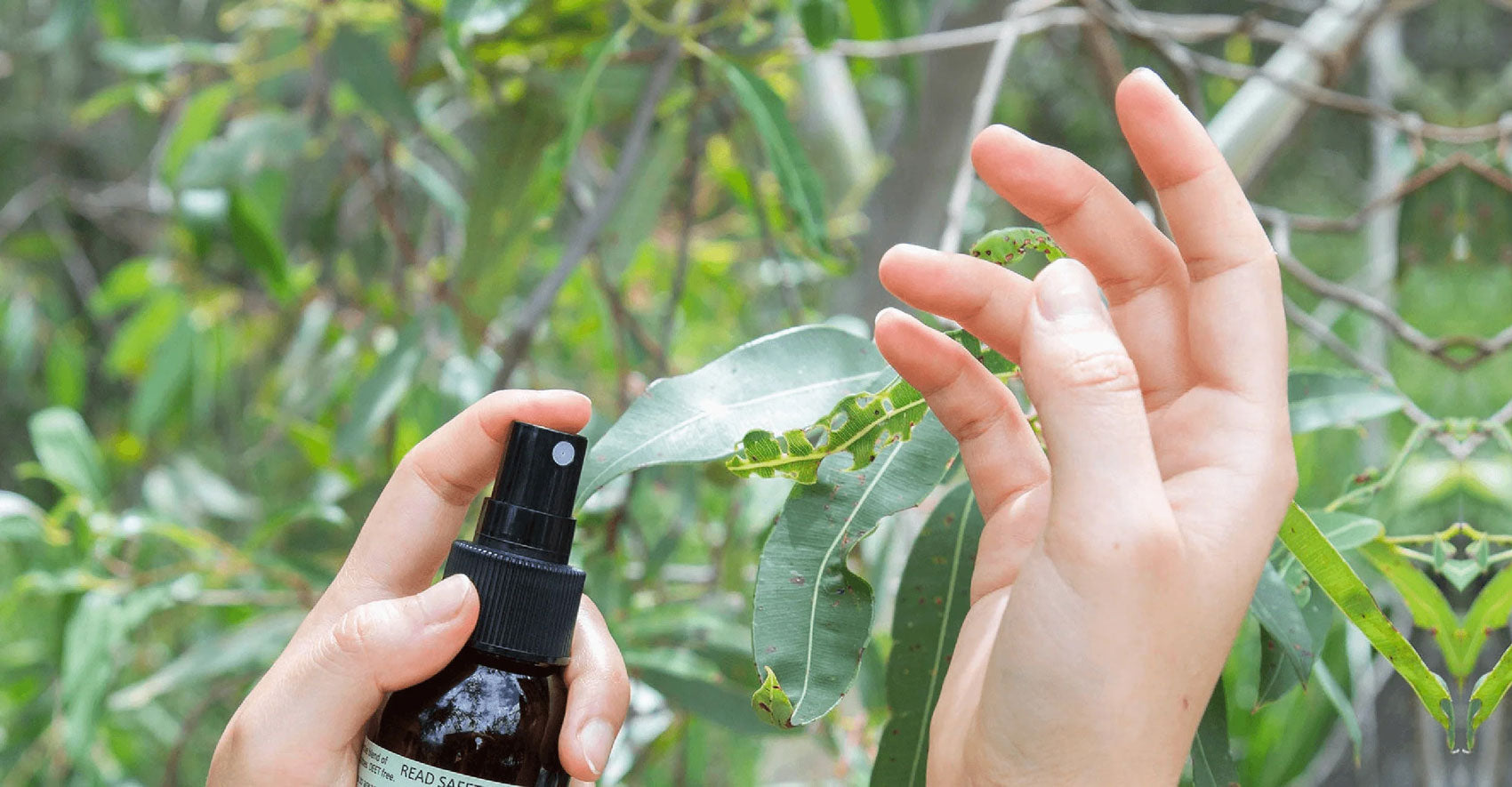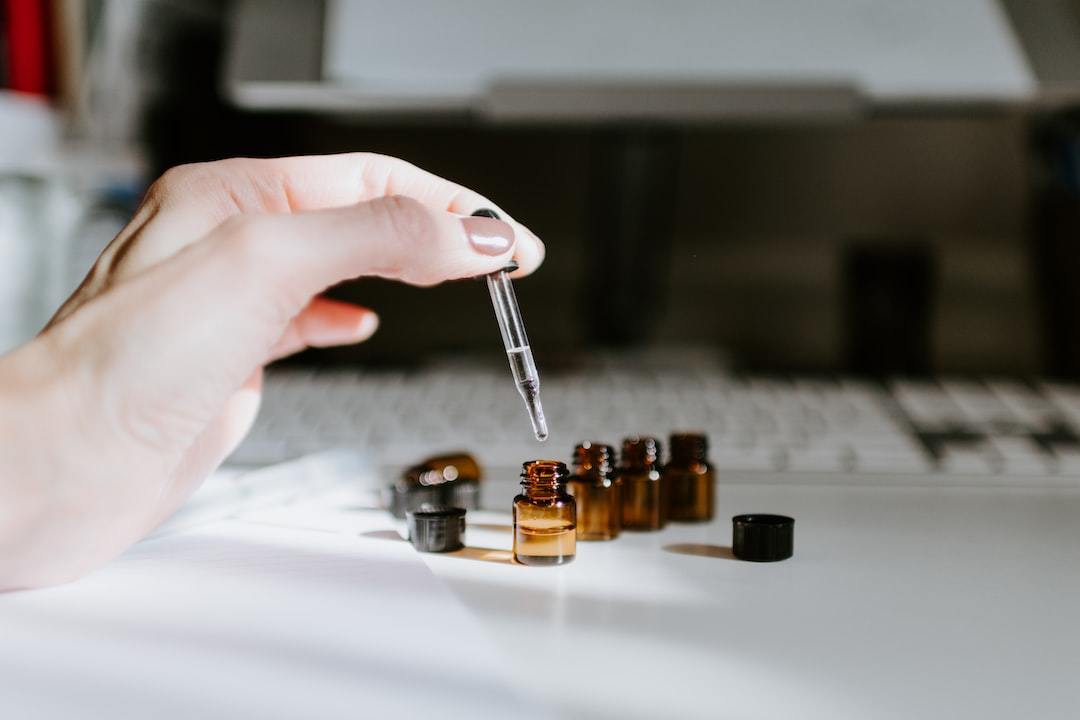
Lemon Myrtle - the natural insect repellant
When it comes to keeping pesky insects at bay, Natural insect repellent is a game-changer.
Until recently, figuring out the best way to keep mozzies and other flying insects away can leave people scratching their heads - not to mention their bites! Now there's an easier way to enjoy our summer evenings bite.
We're talking about natural insect repellent, - an effective solution that doesn't involve dousing ourselves with harsh chemicals. In this blog post we'll explore this green alternative!

Table of Contents:
-
The Power of Lemon Myrtle Essential Oil as an Insect Repellent
-
Understanding the Aedes aegypti Mosquito and the need for a natural insect repellant.
-
-
Potential Risks and Precautions When Using Natural Insect Repellents
The Power of Lemon Myrtle Essential Oil as an Insect Repellant
When it comes to the world of natural insect repellents, you probably wouldn't have even considered lemon myrtle essential oil. However, this Australian botanical is gaining traction in formulating effective insect repellents, and for good reason.

Why we need to keep mosquito's under control
A notorious carrier of dengue fever, the Aedes aegypti mosquito species poses serious health risks worldwide.
Lemon myrtle essential oil has shown potential as a strong Aedes aegypti mosquito repellent. In addition to reducing mosquito attraction, it also offers other benefits like soothing skin irritations from mosquito bites.
Sounds promising? It sure does. We'll now compare lemon myrtle with other popular natural alternatives such as citronella or cinnamon oil.

Comparing Lemon Myrtle with Other Natural Insect Repellents
Lemon myrtle essential oil is gaining traction as an effective natural insect repellant. But how does it stack up against other natural options like citronella, cinnamon oil, and thyme oil?
The Role of Citronella to repel insects
Citronella has long been a go-to choice for repelling insects, however, research shows mixed results. In comparison to lemon myrtle essential oil, its effectiveness varies greatly depending on the mosquito species at hand.
Moving onto cinnamon and thyme oils - they too have their own strengths and weaknesses when it comes to insects.
Nature's Strong Mosquito Repellent: Lemon Myrtle Essential Oil vs Castor Oil
Two plant-based mosquito repellents, lemon myrtle essential oil and castor oil, are being found to be the best natural options.
Lemon myrtle essential oil is derived from the leaves of the lemon myrtle tree, native to Australia. It has a strong, citrusy scent that mosquitoes find repulsive. Castor oil, on the other hand, is extracted from the seeds of the castor bean plant. It works by coating the skin and creating a barrier that mosquitoes find difficult to penetrate.
How to Use Lemon Myrtle Essential Oil and Castor Oil as Insect Repellents
To use lemon myrtle essential oil as a natural insect repellant, simply dilute a few drops in a carrier oil, such as coconut oil, and apply it to exposed skin. Alternatively, you can add a few drops to a diffuser to repel mosquitoes indoors.
Castor oil can be used as a topical repellent by applying it directly to the skin. Although castor oil may be effective, it can also be quite uncomfortable due to its thick and sticky consistency.
Other Plant-Based Repellents to Consider
In addition to lemon myrtle essential oil and castor oil, there are several other plant-based compounds that have been found to repel insects effectively.
Citronella, taken from the leaves and stems of citronella grass, is a well-known choice to ward off mosquitoes. It can be used in candles, lotions, and sprays. Natural mosquito repellents are a great way to stop mosquito bites not to mention reduce mosquito attraction.
Neem oil, extracted from the seeds of the neem tree, is another powerful insect repellent. Neem oil, obtained from the seeds of the neem tree, is frequently utilized in skin care items and can be applied directly to the body.
By harnessing the power of these plant-based compounds, we can effectively protect ourselves from annoying and sometimes deadly insects while minimizing our exposure to synthetic chemicals.
Key Takeaway:
Lemon Myrtle Essential Oil is a powerful natural mosquito repellent and has even been shown to be an effective aedes aegypti mosquito repellent. Lemon Myrtle has a citrusy scent that repels mosquitoes, Other options include citronella oil and neem oil. These plant-based compounds offer effective insect protection without synthetic chemicals.

The Importance of Dilution in Essential Oils
Essential oils are potent substances.
This is where carrier oil comes into play. It helps prevent skin sensitivity issues by reducing the concentration of active ingredients on your skin surface without compromising their effectiveness as an effective insect repellent.
Incorporating Lemon Myrtle Essential Oil into Products
For manufacturers aiming to create an effective insect repellent, lemon myrtle essential oil offers a potent and natural solution. This Australian botanical has shown strong mosquito repellent properties against various species including the Aedes aegypti mosquito.
Research even indicates that it may reduce mosquito attraction more effectively than other plant-based alternatives such as citronella or cinnamon oil.
Leveraging its Potential in Your Product Line
To harness this power, consider incorporating lemon myrtle essential oil into your product formulations.
Whether you're producing bug sprays for outdoor enthusiasts or developing personal care items with added benefits, there's room for innovation here.
Maintaining Safety and Efficacy Standards
Always dilute essential oils like lemon myrtle with carrier oils before application on skin based on advice from DermNet NZ.

Conclusion
In the world of natural insect repellants, Lemon Myrtle is a game-changer. Compared to other botanicals such as citronella and thyme oil, Lemon Myrtle proves itself an effective deterrent against the Aedes aegypti mosquito.
The power of plant-based compounds cannot be underestimated in their role as insect deterrents.Lemon Myrtle essential oil stands out with its unique properties and versatility. But remember, even natural solutions come with precautions - always dilute your essential oils! If you're keen on creating products that are eco-friendly and potent, consider incorporating this Australian gem into your lineup.
For more information, send us an email, to find out how Lemon Myrtle can take your product to the next level.
Stay in the know by clicking here.


